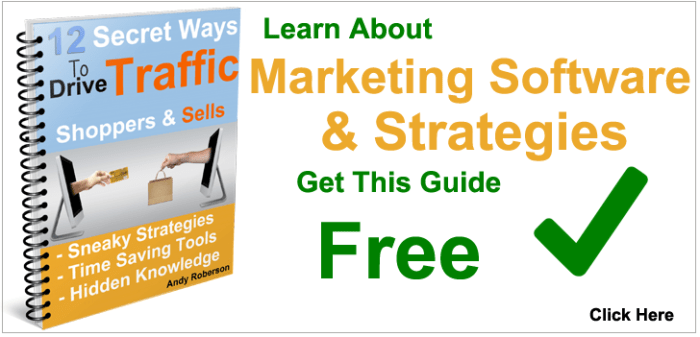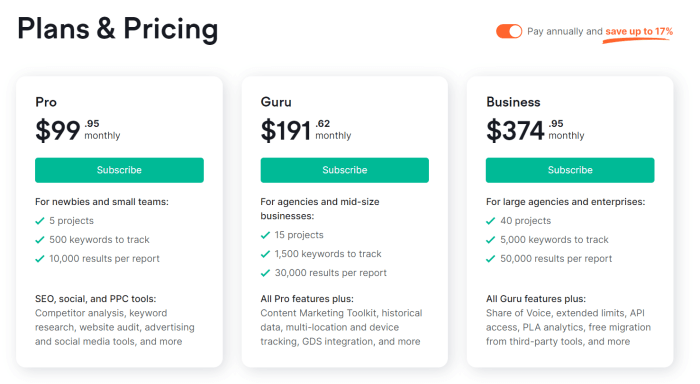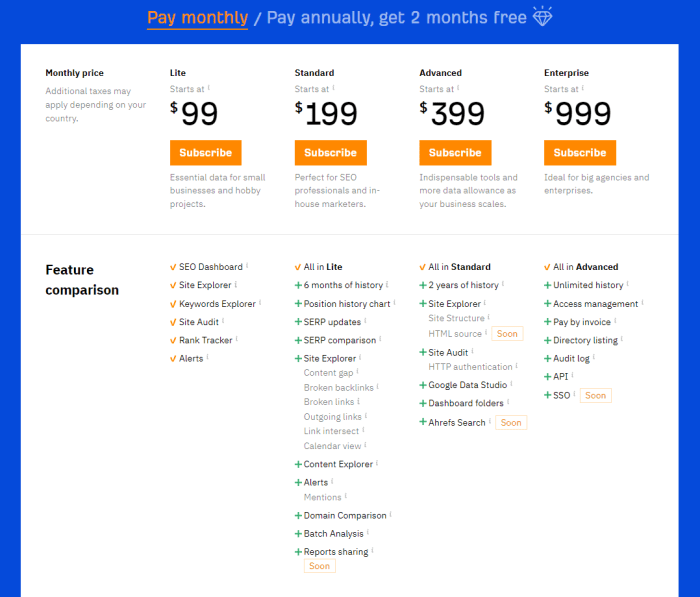Sales and marketing software for small businesses – Small businesses often face the challenge of managing sales and marketing effectively, especially with limited resources. Fortunately, a wide range of software solutions can streamline these processes, boosting efficiency and growth. This comprehensive guide explores the best sales and marketing software options for small businesses, covering key features, benefits, and considerations for choosing the right fit.
Understanding the Need for Sales and Marketing Software
Traditional methods of managing sales and marketing, like spreadsheets and email campaigns, can quickly become cumbersome as a business scales. Sales and marketing software, often referred to as CRM (Customer Relationship Management) software or marketing automation software, offers a centralized platform for managing customer interactions, tracking leads, automating tasks, and analyzing performance. This allows small businesses to focus on strategic initiatives rather than getting bogged down in administrative details.
Key Features to Look for in Sales and Marketing Software
Choosing the right software requires understanding your specific needs. Here are some key features to consider:
Contact Management and Lead Tracking
A robust system should allow for detailed contact information, lead scoring, and automated follow-up sequences. This helps nurture leads and track their progress through the sales funnel.
Sales Automation
Automation of repetitive tasks like email marketing, appointment scheduling, and follow-up reminders can significantly boost efficiency. Look for features that integrate with your existing calendar and email systems.
Marketing Automation, Sales and marketing software for small businesses
Marketing automation tools can automate email campaigns, social media posting, and targeted advertising. This can significantly improve your return on investment (ROI) in marketing efforts.
Reporting and Analytics
Crucial for understanding campaign performance and identifying areas for improvement. Detailed reports on sales figures, customer interactions, and marketing campaign effectiveness are essential for data-driven decision-making.

Source: medium.com
Integration Capabilities
The software should integrate seamlessly with other essential business tools like accounting software, email platforms, and social media accounts. This reduces manual data entry and improves overall workflow.

Source: tweakyourbiz.com
Types of Sales and Marketing Software for Small Businesses
Several types of software cater to different needs. Here are some common options:
CRM Software
Customer Relationship Management (CRM) software focuses on managing customer interactions and relationships, from initial contact to post-sale support. It’s crucial for building and maintaining long-term customer loyalty.
Marketing Automation Software
This type of software automates various marketing tasks, including email campaigns, social media scheduling, and lead nurturing. It’s ideal for optimizing marketing efforts and boosting ROI.
E-commerce Platforms
If your business involves online sales, an e-commerce platform is essential. These platforms manage online stores, inventory, and customer transactions. Many offer built-in marketing features.
Choosing the Right Software for Your Small Business
Consider your budget, business size, and specific needs when evaluating different options. Free trials and demos are often available, allowing you to test the software and its functionalities.
Budget Considerations
Pricing varies significantly depending on the features, functionality, and the number of users. Look for options that offer tiered pricing plans to suit your budget and growth potential. Also consider the long-term cost of maintenance and support.
FAQ
- Q: What is the difference between CRM and marketing automation software?
A: CRM focuses on customer relationships, while marketing automation focuses on automating marketing campaigns.
- Q: How much does sales and marketing software cost?
A: Pricing varies greatly depending on the features and vendor. It’s essential to explore different options and pricing tiers.
- Q: Can I integrate my existing software with the new system?
A: Many sales and marketing software solutions offer integrations with common business applications.
Conclusion and Call to Action
Investing in the right sales and marketing software can be a game-changer for small businesses. It streamlines operations, boosts efficiency, and ultimately contributes to growth. By understanding your specific needs and comparing different options, you can choose the software that best supports your business goals. Start your search for the ideal sales and marketing software today! Visit [link to relevant vendor/resource website] to explore options and discover the perfect fit for your business.
Disclaimer: This article is for informational purposes only and does not constitute financial advice.
Question & Answer Hub
What are some common features of sales and marketing software?
Many platforms offer features like CRM (Customer Relationship Management) to track interactions, email marketing automation, social media management tools, and analytics dashboards to monitor campaign performance.
How much does sales and marketing software typically cost?

Source: tweakyourbiz.com
Pricing varies significantly depending on the features, platform, and the number of users. Some are free or have a basic tier, while others are more comprehensive and come with premium pricing.
Is it easy to learn and use sales and marketing software?
Most platforms have user-friendly interfaces, and tutorials and support are often available to assist with onboarding and training. However, the complexity can vary based on the specific platform and its features.
What are the benefits of using a CRM for small businesses?
CRMs centralize customer data, helping small businesses manage leads, track interactions, and personalize communications, leading to better customer retention and improved sales.